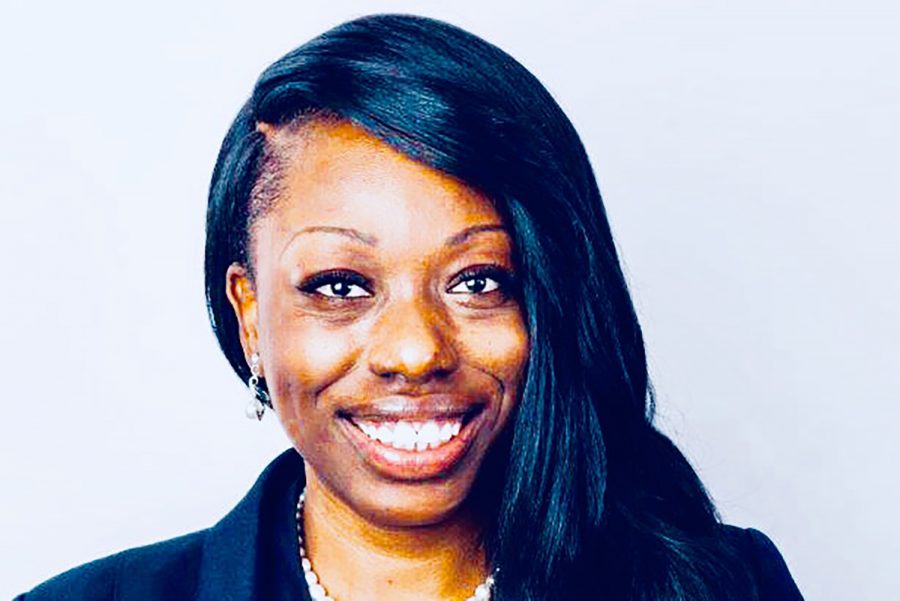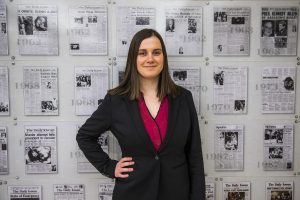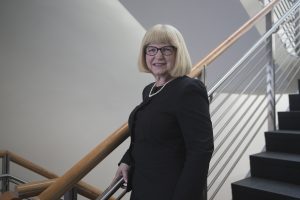UI law student establishes endowment to help underrepresented students visit campus
Winnie Uluocha has set up an endowment with the hopes of providing financial aid to students from underrepresented groups wanting to visit the College of Law.
March 4, 2019
A University of Iowa College of Law student is helping underrepresented students visit the law school with the aim of creating a more diverse campus.
Law student Winnie Uluocha has set up an endowment to help pay for visits to the law school for underrepresented groups.
Uluocha is a member of the Diversity, Equity, and Inclusion Committee at the college. She has worked in numerous areas around diversity since 2016, and she was awarded the Philip Hubbard Human Rights Award in 2018 for her efforts.
The idea for the endowment began in conversations with the College of Law Assistant Dean Collins Byrd, she said.
Byrd said he and Uluocha looked at the factors that influence a student to choose the UI over other law schools. They found that if students visit the law school, they are far more likely to enroll.
Uluocha said the cost of traveling to the law school was a big factor in preventing students from underrepresented groups from visiting.
“I just thought, ‘Well, if that’s the issue, and if we want to attract more diverse students, then how about we help them?’ ” she said.
Uluocha launched her endowment in the spring of 2018. It became finalized in December, and she has begun the work of receiving donations. She hopes the endowment will be ready to use for students applying for admission in the fall 2020 semester.
RELATED: Law school looks ahead globally
Any applicant with a socioeconomic or educational disadvantage will be eligible for the award. It will provide aid to prospective students to reduce financial challenges associated with visiting the College of Law.
The endowment is named after Alexander Clark Jr., the first African American to graduate from the UI law school.
“He was the first African American to graduate from the law school, and we didn’t have anything that honored him, in my opinion, in any meaningful way,” Uluocha said. “I thought the best way to do that was to name something like this [after him].”
Byrd said the admissions department looks at a number of factors to ensure a diverse pool of students at the law school, and the staff members begin by looking at the applicant’s academic performance and achievements. Then they consider the challenges the applicant had to overcome to achieve that.
“Just about everybody that applies to this school has some badge of courage,” Byrd said. “This is a factor that goes way beyond the box they check when they’re applying.”
Law research assistant Justin McCorvey, the chair of the Diversity, Equity and Inclusion Committee at the College of Law, said he was excited about the prospect of the endowment bringing more diverse students to campus.
In addition to those efforts, the committee provides support for students once they arrive at the school. McCorvey said the staff recently put together welcome packages for newly admitted diverse students.
McCorvey would like to see the law school implement more diversity recruitment efforts, he said, and would like to see the administration create a strategic plan to target diverse groups of students.
“The College of Law has been making strides to increase its diversity numbers,” he said. “However, there is much room for improvement.”






